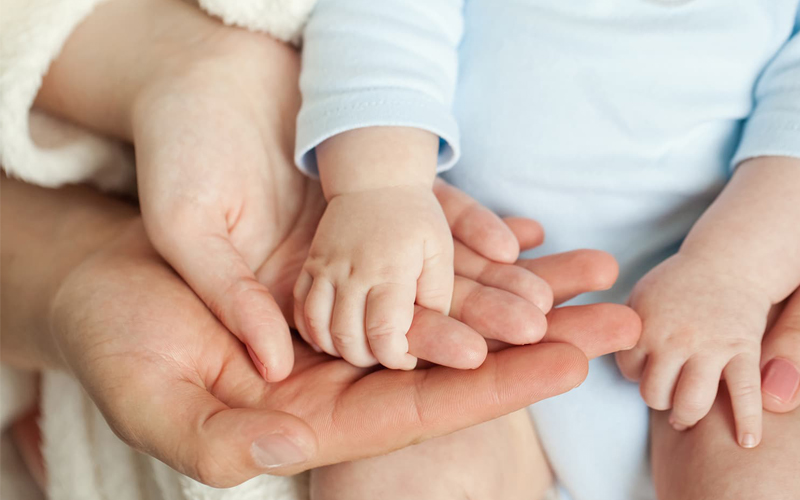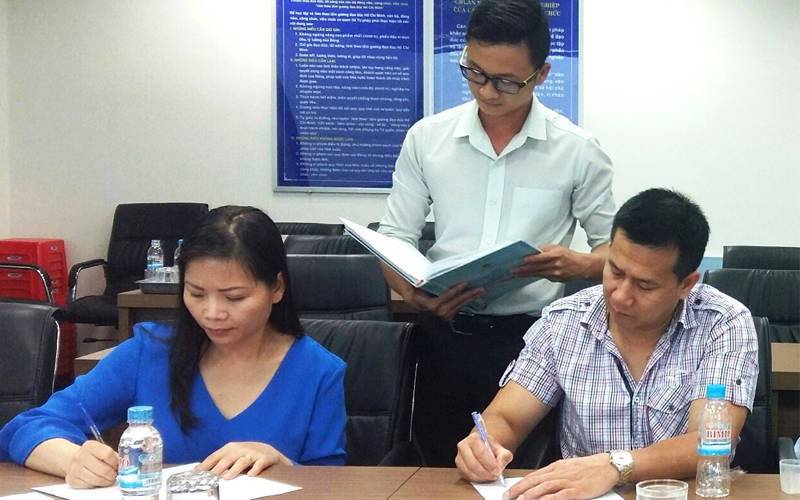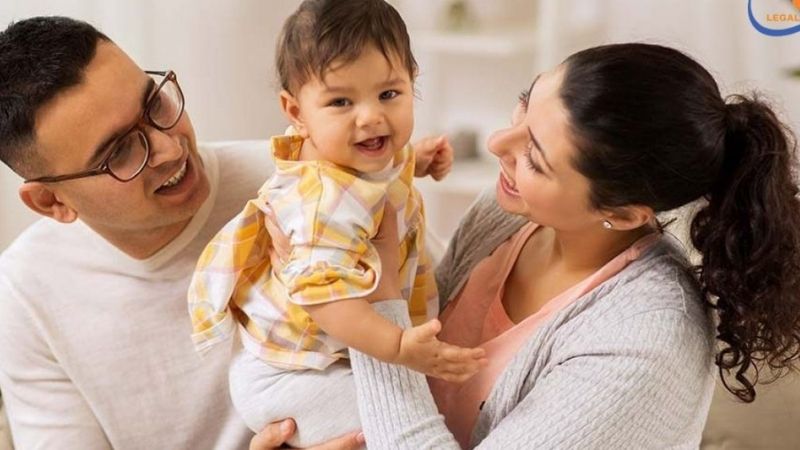Adopting a child is a wonderful way to grow your family, but it’s important to understand the requirements and procedures involved. In this comprehensive guide, we’ll explore the ins and outs of adoption, ensuring you have all the information you need to navigate the process successfully.
1. Adoption Requirements
Prospective Adoptive Parents
According to Clause 1, Article 14 of the 2010 Law on Adoption, individuals interested in adopting a child must meet several criteria. These include:
– Being of sound mind and having full civil act capacity.
– Being at least 20 years older than the child they wish to adopt.
– Possessing adequate economic resources, good health, and suitable accommodation to provide for the child’s needs.
– Demonstrating good moral character.
It’s important to note that the last two conditions are waived in cases where a stepparent adopts their spouse’s child or a relative adopts their grandchild.
For Vietnamese citizens living abroad, it is crucial to comply with the laws of their country of residence in addition to these requirements.
 Adherence to the 2010 Law on Adoption is essential in the adoption process.
Adherence to the 2010 Law on Adoption is essential in the adoption process.
Individuals in the following situations are not eligible to become adoptive parents:
– Currently serving a prison sentence.
– Having their parental rights restricted or revoked.
– Undergoing administrative handling at educational or medical treatment facilities.
– Convicted of certain crimes, including those against life, health, honor, and dignity; involving minors; or related to abuse or child trafficking, unless the sentence has been erased.
Birth Parents
Documentation Requirements
According to Clause 1, Article 18, the following documents are required for a child being adopted domestically
:
– Birth certificate.
– Health certificate from a district-level or higher health authority.
– Two recent full-body, forward-facing photos.
Note: If a parent is deceased or incapacitated, these requirements may be waived.
Consent Requirements
Clause 1, Article 21 outlines the consent process, which varies depending on the family situation
:
“1. For a child to be adopted, the consent of both biological parents is necessary. If one parent has passed away, is missing, or cannot be identified, the consent of the other parent is sufficient. In cases where both parents are deceased, missing, or incapacitated, the guardian’s consent is required. Additionally, for children aged 9 and above, their consent is also needed.”
When a child is given up for adoption, both biological parents must consent. However, in cases where one parent is deceased, missing, or unknown, the consent of the known parent is enough.
Determining Paternity and Maternity
Article 88 of the Law on Marriage and Family provides guidelines for establishing paternity and maternity
:
“1. Any child born during the marriage or conceived within 300 days of its termination is presumed to be the common child of the husband and wife. Additionally, a child born before marriage but acknowledged by both parents as their own is also considered their common child.
2. In cases where the father and mother do not acknowledge the child, evidence is required, and the Court will determine paternity and maternity.”
The law assumes that a child born during the marriage or under specific conditions is the responsibility of both spouses, giving them equal rights and duties in the child’s care.
The Adoptee
Article 8 of the 2010 Law on Adoption sets out the eligibility criteria for individuals to be adopted:
– Children under 16 years old.
– Individuals aged 16 to under 18 who are stepchildren or grandchildren and fall under specific categories.
– Vietnamese law also stipulates that an individual can only be adopted by a single person or a married couple.
2. Adoption Procedures
The process of adopting a child typically involves the following steps:
Step 1: Submit Documentation
Prospective adoptive parents must submit their documentation and that of the adoptee to the People’s Committee at the commune level. This can be done where either the prospective parents or the adoptee permanently resides.
 The adoption process involves signing important documents.
The adoption process involves signing important documents.
Documents for Prospective Adoptive Parents:
– Adoption application.
– Copy of passport, ID card, citizen identification, or valid substitute document.
– Criminal record check.
– Marriage certificate or equivalent.
– Health certificate and a document confirming family, residence, and economic status from the commune-level People’s Committee.
Documents for Adoptee:
– Birth certificate.
– Two recent full-body, forward-facing photos.
– Health certificate from a district-level or higher health authority.
– Decision on reception for children in care, if applicable.
– Other relevant documents: Verification report for abandoned children, court decisions regarding missing or incapacitated biological parents.
The People’s Committee at the commune level has 30 days from the validation of the dossier to resolve adoption cases.
Step 2: Verify and Complete Documentation, Obtain Opinions
The commune-level People’s Committee is responsible for verifying and completing the documentation within 10 days of receiving the complete dossier. They must also collect written opinions from relevant parties, as outlined in Article 21 of the 2010 Law on Adoption.
Step 3: Register the Adoption
Once the eligibility and legality of the adoption are confirmed, the commune-level People’s Committee will organize the registration. They will issue an Adoption Certificate and facilitate the handover of the adoptee, recording it in the household registration book within 20 days of receiving consent. (Article 21)
 Adoptive parents and adoptees have full rights and obligations towards each other.
Adoptive parents and adoptees have full rights and obligations towards each other.
If the commune-level People’s Committee does not approve the registration, they must provide a written response to the relevant parties within 10 days of receiving the opinion.
From the date of the handover, the adoptive parents and adoptee have full legal rights and obligations, as per the law on marriage and family, civil law, and other relevant codes.
The state authority can change the name and surname of the adoptee from the age of 9 with the consent of the adoptive parents. Biological parents’ rights and obligations cease unless otherwise agreed upon.
3. Additional Notes
 Important considerations for the adoption process.
Important considerations for the adoption process.
Adoption of Abandoned Children
According to Article 18, prospective adoptive parents must provide:
Documents for Prospective Adoptive Parents:
– Adoption application.
– Copy of passport, ID, or substitute document.
– Criminal record check.
– Marriage certificate or equivalent.
– Health certificate and confirmation of family, residence, and economic status from the commune-level People’s Committee, except in specific cases.
Documents for Abandoned Children:
– Birth certificate (certified copy).
– Health certificate from a district-level or higher health authority.
– Two recent full-body photos.
– Verification report for abandoned children from the local People’s Committee or Commune Police.
Submit these documents to the commune-level People’s Committee for initiation of the adoption process, which typically takes around 30 days.
Adoption with Foreign Elements
For foreigners not permanently residing in Vietnam, the following documents are required:
– Adoption application.
– Copy of passport or equivalent.
– Permission to adopt in Vietnam.
– Psychological and family assessment report.
– Health and income verification.
– Criminal record check.
– Marriage certificate or equivalent.
For foreigners permanently residing in Vietnam and adopting a Vietnamese child, the following documents are needed:
– Adoption application.
– Copy of passport, ID, or substitute document.
– Criminal record check.
– Marriage certificate or equivalent.
– Health certificate from a district-level or higher health authority.
– Confirmation of family, residence, and economic status from the commune-level People’s Committee, except in specific cases.
Documents for the Adoptee:
– Birth certificate.
– Health certificate.
– Two recent full-body, forward-facing photos.
– Verification report for abandoned children.
– Death certificate of biological parents or court decision declaring them deceased.
– Court decisions regarding missing or incapacitated biological parents.
Submit the dossier to the Department of Justice and the provincial-level People’s Committee. The resolution time is typically between 15 and 30 days.
Adoption of Children Living with Biological Parents
According to Article 21, the consent of the biological parents is crucial. The People’s Committee at the commune level must counsel the consenting party on adoption purposes, rights, and obligations. Consent must be voluntary and free from coercion or bribery.
Biological parents can only consent to adoption after the child has been born for at least 15 days. The implementation process is similar to the one outlined in Section 2.
For more information, don’t hesitate to reach out. We’re here to help you navigate this important journey.































